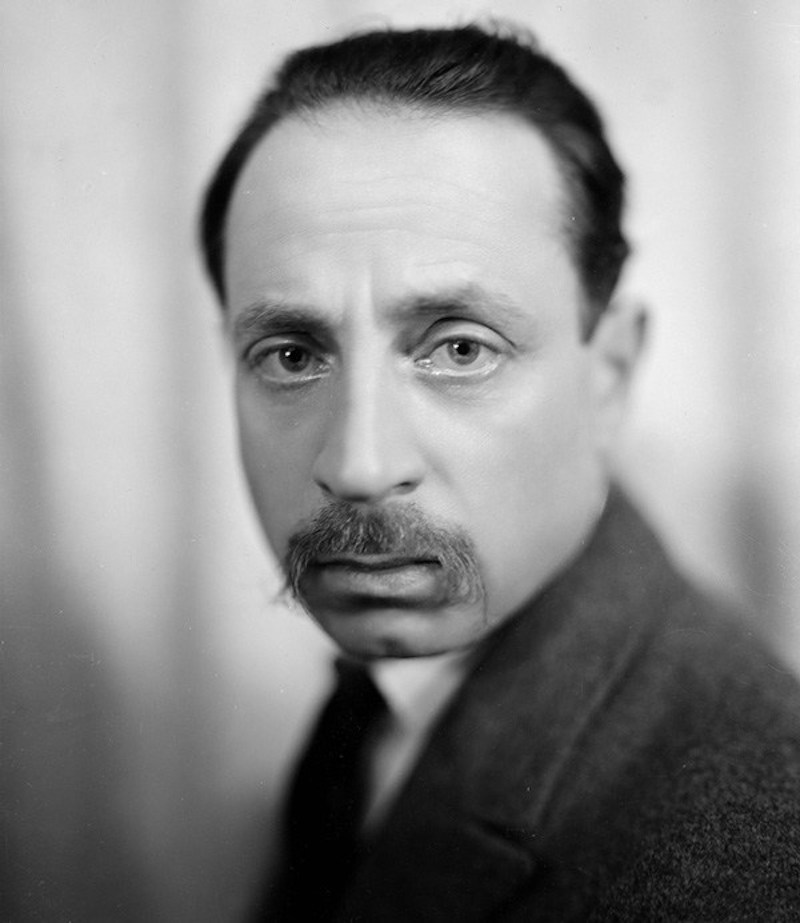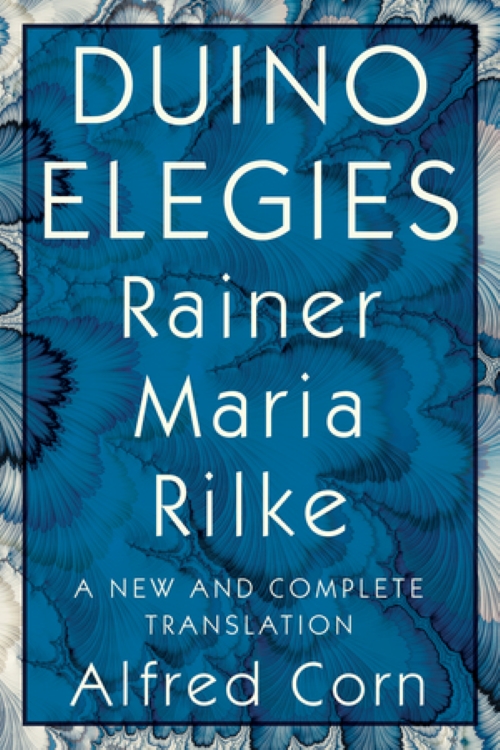With all of their eyes, animals beholdopenness. Only our seeing isretrospective, set like traps around them,an obstacle that blocks the path to freedom.What does exist outside we come to knowfrom their faces alone; in fact, we makeeven young children turn and take a backwardlook at fixed concepts, not at the opennessdeep in those mammal features. Free of death.That, only we see; the unhindered animalkeeps its decline and sunset ever behind it,with God before; and, if it walks, goes forwardin timelessness, like springs that well and flow. Yet we don’t, not even for a single day,have pure space before us, a place where flowersforever bloom. It’s always the real world,never a Nowhere void of negation, a pureUnsurveillance that can be inhaled,forever known and thus not craved. As childrenwe lose ourselves to this in silence, untilabruptly shaken. Or someone dying is it,and, near death, does not see death but staresbeyond it, his gaze perhaps large as the mammals’.And lovers, if their partner didn’t blockthe view, could then draw near and be astonished . . .As if by someone’s oversight, space opensbehind the partner. Since neither can get beyondthe other, each of them turns back into World.Forever focused on Creation, we see itas only a mirroring of untrammeled regionsthat we have darkened. Or an animal,voiceless and calm, looks up and then straight through us.Our fate consists of this: to be against,nothing else but that, and always against.Were consciousness like ours present inthe animal whose firm tread moves toward usfollowing its own guidance—, we’d be tornalong its wayward path. Its inner self, though,is limitless, ungrasped, with no regardfor its positioning, pure, like its clear gaze.And where we see a future, it sees All,itself within that All, forever healed.And yet inside the warm and watchful mammalthe weight and pain of sorrow also dwells.For it fastens on him too, a thing that oftenoverpowers us,—the recognitionthat what one strives so hard for was perhapsat one time closer, truer, an allianceendlessly tender. Here, all is detachment.There, all was breath. And after the first home,the next seems like mere travesty and bluster. O blessedness accorded the small creaturestill living in the vessel where it was born.Joy of the mayfly that leaps up insideeven when mating. The vessel’s everything.Observe the songbird’s hindered confidence:its hatching almost taught it to know both,as though it were the soul of an Etruscanwhose mortal flesh an opened space received,with his own reclining likeness as its lid.And how it baffles those poor creatures bornfrom wombs, yet meant to fly. As though alarmedat themselves they flitter through the air, much likea crack going through a cup. So the bat’s pathsplits through the evening sky’s porcelain.And we, observers, relentless, everywhere,intent on objects, never looking outside them!They overfill us. We arrange them. They break up.Once more we arrange. We ourselves are broken.Then who has wheeled us backwards, so that we,no matter the action, always seem to havethe stance of those about to depart? Like someoneon the final hill, which one more time shows himhis entire valley, who turns, pauses, lingers—,and so we live, constantly saying farewell.
Die Achte Elegie
Rudolf Kassner zugeeignetMit allen Augen sieht die Kreaturdas Offene. Nur unsre Augen sindwie umgekehrt und ganz um sie gestelltals Fallen, rings um ihren freien Ausgang.Was draußen ist, wir wissens aus des TiersAntlitz allein; denn schon das frühe Kindwenden wir um und zwingens, daß es rückwärtsGestaltung sehe, nicht das Offne, dasim Tiergesicht so tief ist. Frei von Tod.Ihn sehen wir allein; das freie Tierhat seinen Untergang stets hinter sichund vor sich Gott, und wenn es geht, so gehtsin Ewigkeit, so wie die Brunnen gehen. Wir haben nie, nicht einen einzigen Tag,den reinen Raum vor uns, in den die Blumenunendlich aufgehn. Immer ist es Weltund niemals Nirgends ohne Nicht: das Reine,Unüberwachte, das man atmet undunendlich weiß und nicht begehrt. Als Kindverliert sich eins im Stilln an dies und wirdgerüttelt. Oder jener stirbt und ists.Denn nah am Tod sieht man den Tod nicht mehrund starrt hinaus, vielleicht mit großem Tierblick.Liebende, wäre nicht der andre, derdie Sicht verstellt, sind nah daran und staunen . . .Wie aus Versehn ist ihnen aufgetanhinter dem andern . . . Aber über ihnkommt keiner fort, und wieder wird ihm Welt.Der Schöpfung immer zugewendet, sehnwir nur auf ihr die Spiegelung des Frein,von uns verdunkelt. Oder daß ein Tier,ein stummes, aufschaut, ruhig durch uns durch.Dieses heißt Schicksal: gegenüber seinund nichts als das und immer gegenüber.Ware Bewußtheit unsrer Art in demsicheren Tier, das uns entgegenziehtin anderer Richtung—, riß es uns herummit seinem Wandel. Doch sein Sein ist ihmunendlich, ungefaßt und ohne Blickauf seinen Zustand, rein, so wie sein Ausblick.Und wo wir Zukunft sehn, dort sieht es Allesund sich in Allem und geheilt fiir immer.Und doch ist in dem wachsam warmen TierGewicht und Sorge einer großen Schwermut.Denn ihm auch haftet immer an, was unsoft überwältigt,—die Erinnerung,als sei schon einmal das, wonach man drängt,näher gewesen, treuer und sein Anschlußunendlich zärtlich. Hier ist alles Abstand,und dort wars Atem. Nach der ersten Heimatist ihm die zweite zwitterig und windig. 0 Seligkeit der kleinen Kreatur,die immer bleibt im Schooße, der sie austrug;o Glück der Mücke, die noch innen hüpft,selbst wenn sie Hochzeit hat: denn Schooß ist Alles.Und sieh die halbe Sicherheit des Vogels,der beinah beides weiß aus seinem Ursprung,als wär er eine Seele der Etrusker,aus einem Toten, den ein Raum empfing,doch mit der ruhenden Figur als Deckel.Und wie bestürzt ist eins, das fliegen mußund stammt aus einem Schooß. Wie vor sich selbsterschreckt, durchzuckts die Luft, wie wenn ein Sprungdurch eine Tasse geht. So reißt die Spurder Fledermaus durchs Porzellan des Abends.Und wir: Zuschauer, immer, überall,dem allen zugewandt und nie hinaus!Uns überfüllts. Wir ordnens. Es zerfällt.Wir ordnens wieder und zerfallen selbst.Wer hat uns also umgedreht, daß wir,was wir auch tun, in jener Haltung sindvon einem, welcher fortgeht? Wie er aufdem letzten Hügel, der ihm ganz sein Talnoch einmal zeigt, sich wendet, anhält, weilt—,so leben wir und nehmen immer Abschied.






